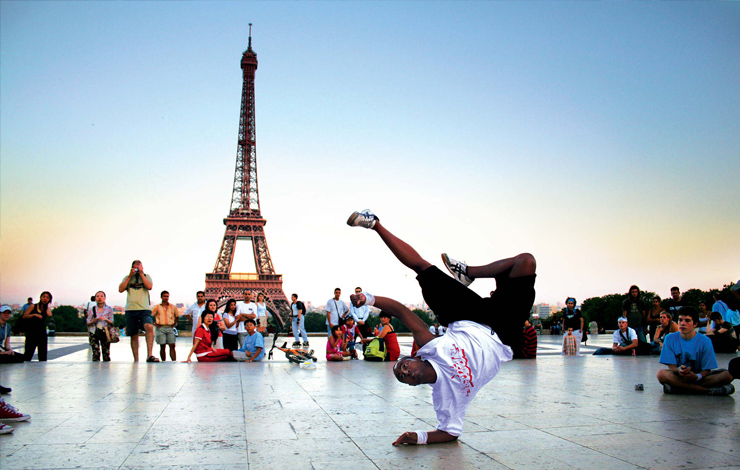
Making documentaries just got a whole lot more stylish! The Tribeca Film Institute and Gucci have launched the Gucci Tribeca Documentary Fund, which will provide finishing funds and post-production guidance to filmmakers with projects that promote social change. Grants totaling $80,000 will be provided to a minimum of three filmmakers in 2008.
The fund is looking for documentaries that already have some momentum and just need that final push to reach completion. Beth Janson, Tribeca All Access Program Director, says, “We felt like we could make a really big impact with a finishing fund. It’s often a point that’s very frustrating for filmmakers because they focus on getting the money to make the film. Post-production can become sort of overwhelming. Issues come up that you don’t anticipate, you’ve exhausted all of your favors, and you need to start paying people who are going to work for you.”
A selection committee of documentary filmmakers, including Albert Maysles, along with representatives from Gucci and the Tribeca Institute, will choose fund recipients. As you might expect from a grant that comes from a fashion brand, both style and substance will be an important consideration when choosing recipients. That means that if your documentary is filled with talking heads, this is probably not the right fund for you.
According to Janson, films that use sources in imaginative, creative and dynamic ways that contribute to the artistic form of documentary film will receive favor. “Art is about changing people’s perceptions,” says Janson. “Documentaries can be especially powerful when you are looking at an injustice and you’re applying your art to that. It’s not journalism. We are really interested in filmmakers who are artists, and as such, they’ve come across an injustice they don’t want to see as just a two-minute story on the evening news.” She cites Alex Gibney as an example of someone who embodies the spirit of the fund, as well as documentaries such as his Taxi to the Dark Side, Brett Morgen’s Chicago 10 and Heidi Ewing and Rachel Grady’s Jesus Camp.
In addition to the monetary reward, grantees will have the benefit of a hands-on relationship with the Tribeca Film Institute. As part of their participation in the fund, filmmakers will be required to provide regular project updates. This will help those at the institute track each film’s progress and figure out how else they might be of assistance— i.e., using their established industry relationships to help secure advisors, providing introductions to post-houses or lending screening facilities for works-in-progress.
The Gucci Tribeca Documentary Fund is the newest endeavor in the Tribeca Institute’s continuing quest to engage and assist the independent film community. Five years ago, the institute launched the Tribeca All Access Program, which connects filmmakers from traditionally under-represented communities to industry professionals through one-on-one meetings, workshops and panels at the annual Tribeca Film Festival. Year-round TAA activities include gatherings in New York and Los Angeles, as well as an online forum for alumni. Future plans may include granting opportunities for production equipment and editing facilities.
Filmmakers at any stage of production may apply to TAA. For documentarians, the minimum requirement is a proposal and a sample of previous work. While participation in the program is not a guarantee of inclusion in the Tribeca Film Festival, several projects have been able to take advantage of all that the Tribeca Institute has to offer. After going through TAA in 2005, Benson Lee premiered his film Planet B-Boy in the Festival’s Documentary Competition in 2007. The film, which examines the vibrant global resurgence of break-dancing, then travelled to Beijing as part of the Tribeca 798 Film Festival. The two-night, cross-cultural event included an outdoor screening of Benson’s film, along with a celebratory block party.
Janson says that the Tribeca Film Institute hopes to continue to build filmmakers’ confidence and careers through their expanding programs. She says, “Tribeca in general is trying to support filmmakers in any way we can. We’re not trying to reinvent the wheel, we’re just updating the car. I think that we’re doing a lot of things differently, like partnering with people that you might not expect an arts organization to partner with. We’re new and we’re young, and we’re trying to react to the realities of right now. I think that the institute is only going to grow in that way."
